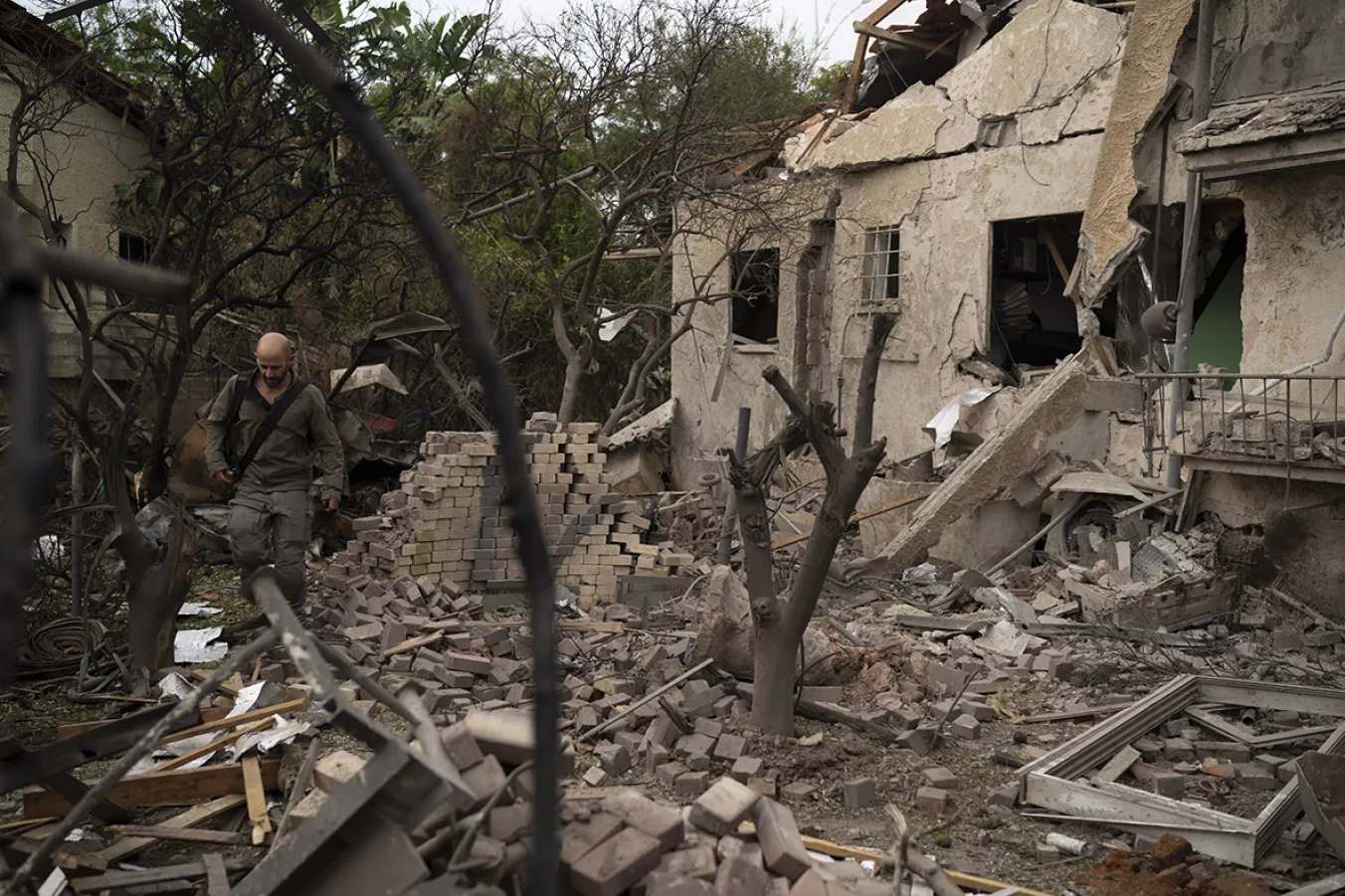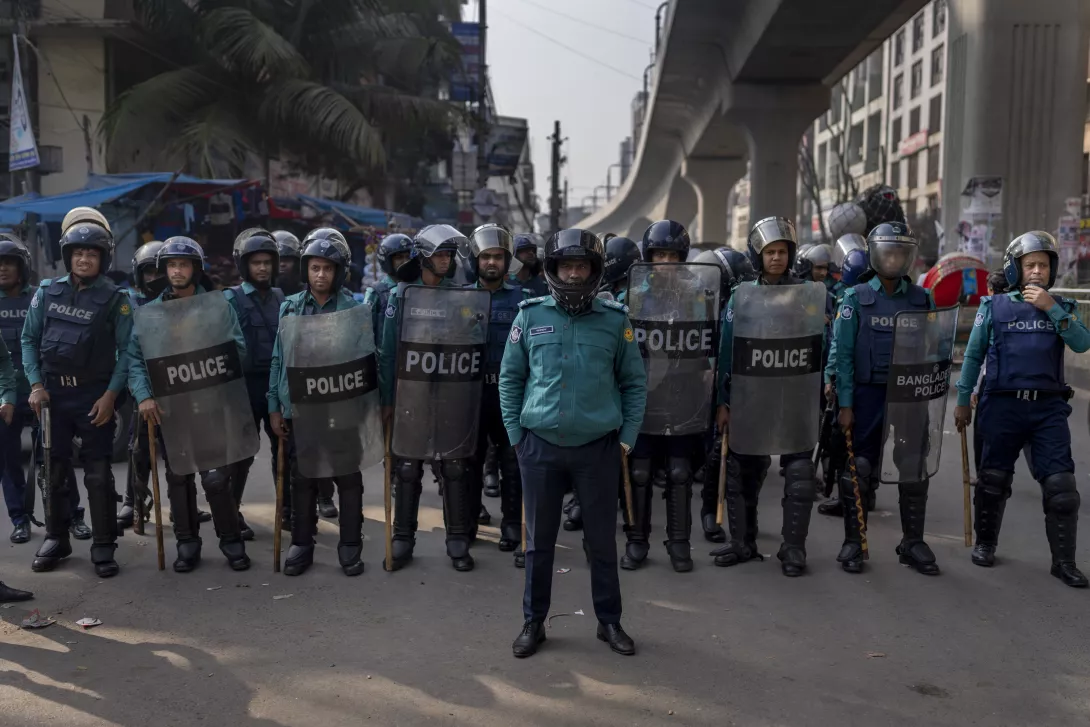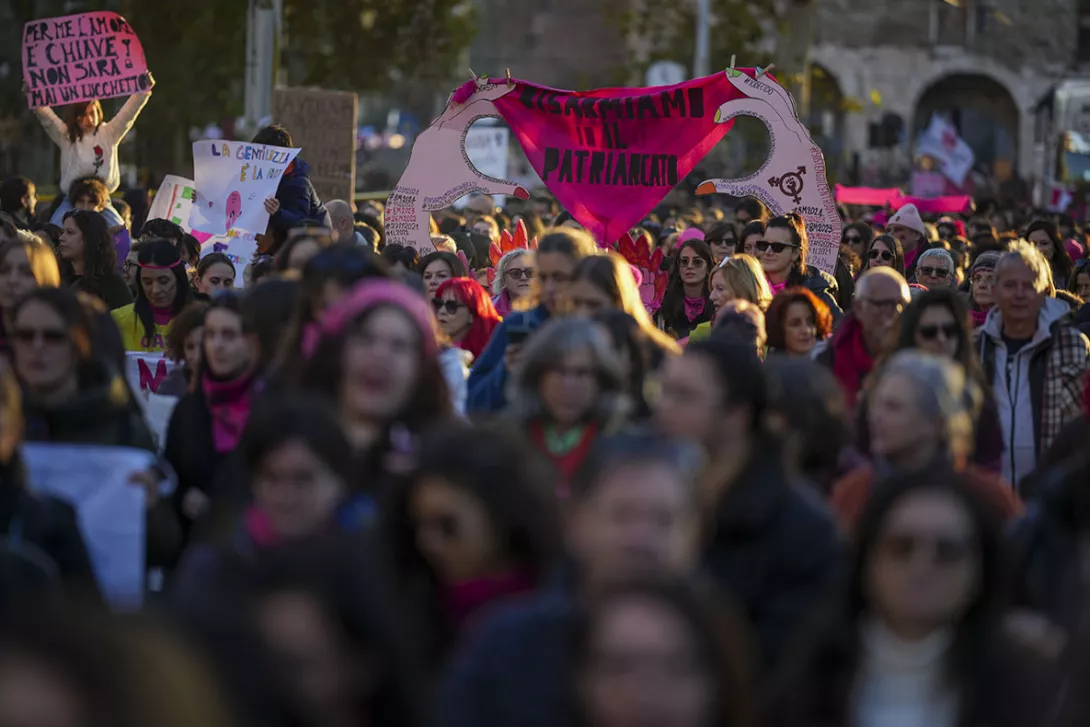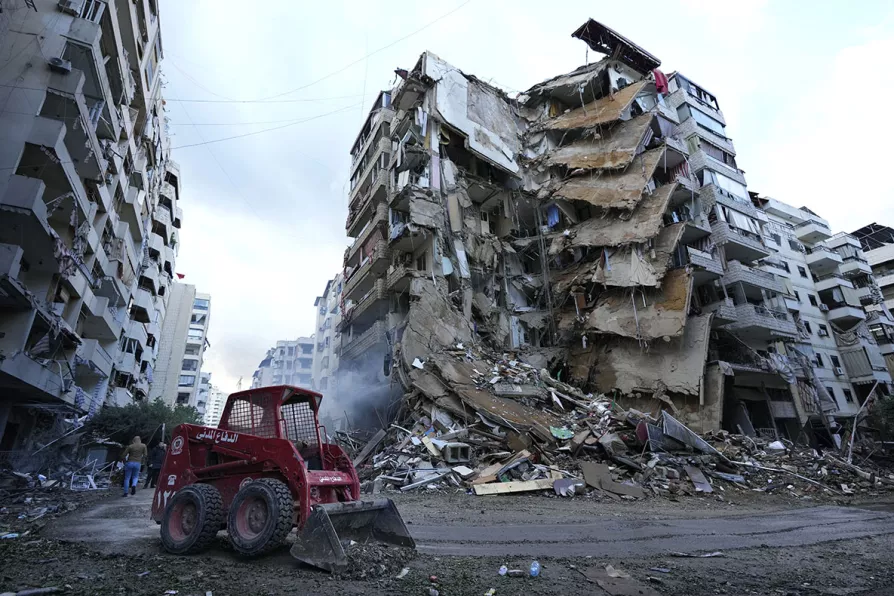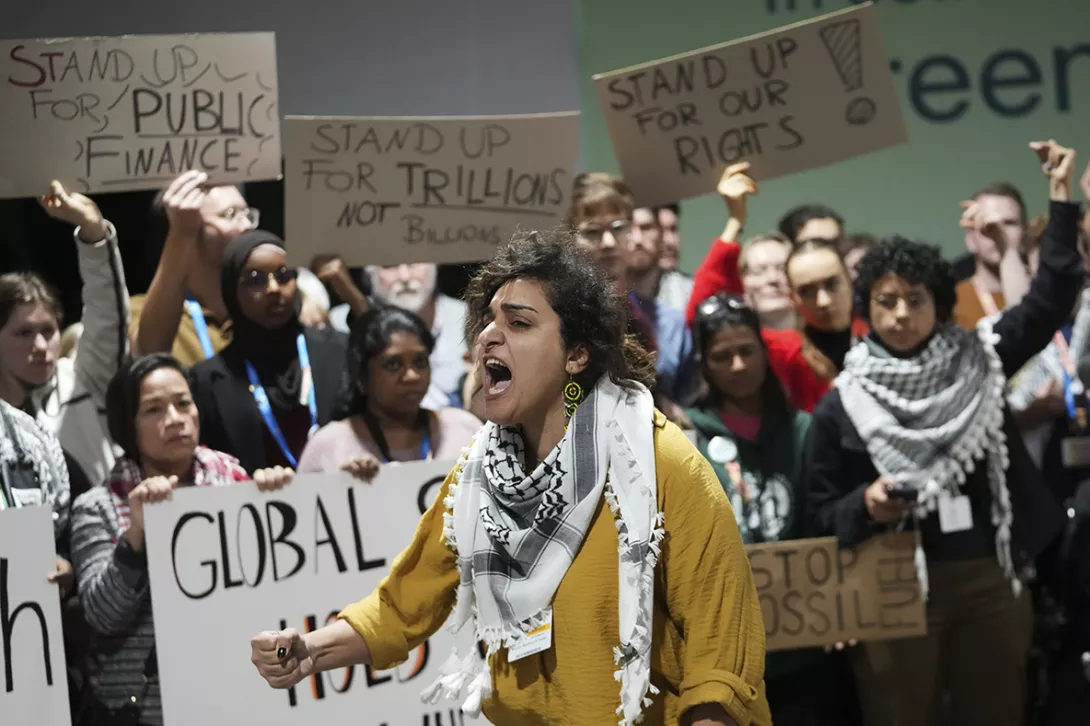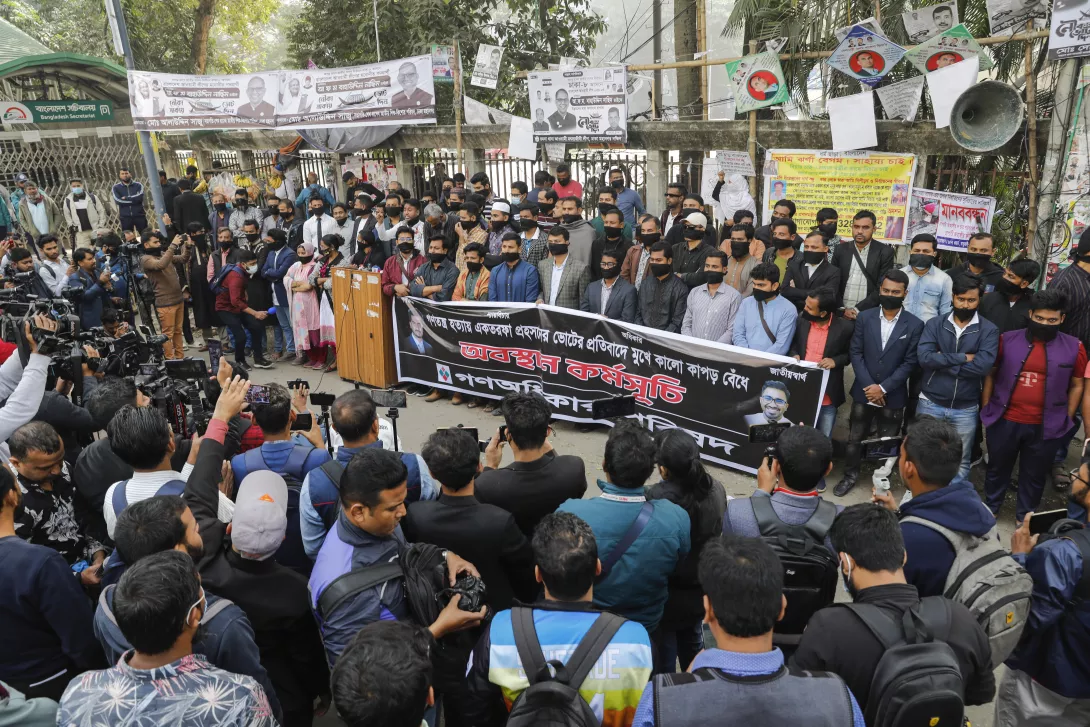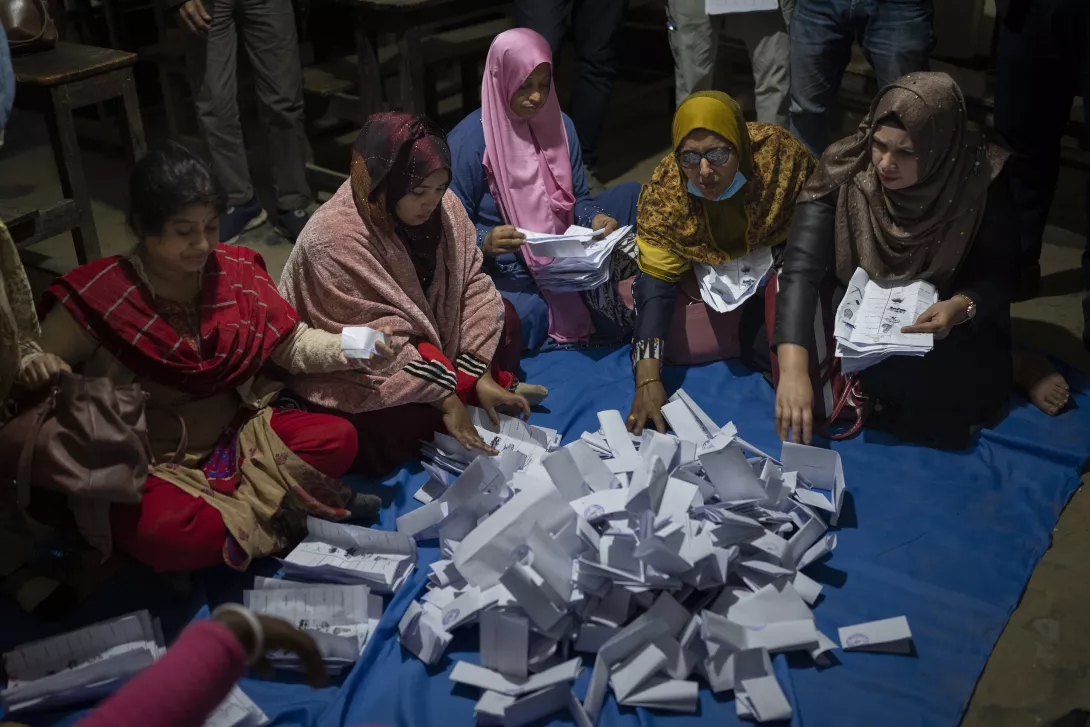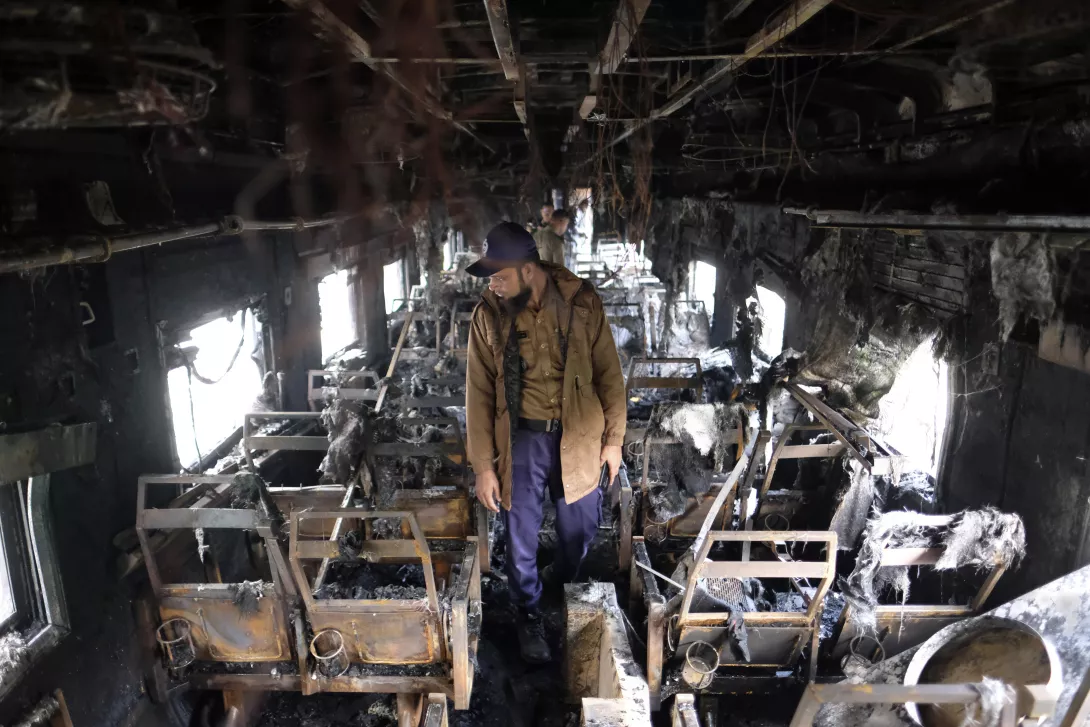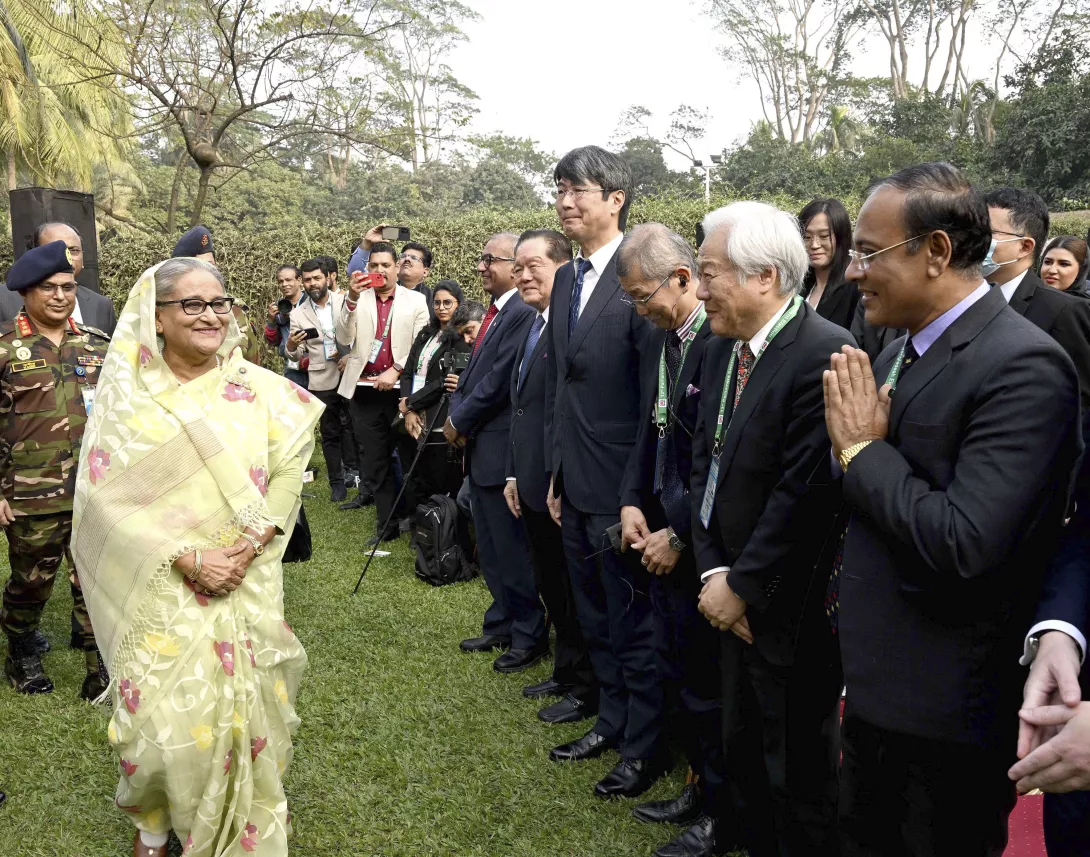
THE United States and Britain said yesterday that the elections in Bangladesh on Sunday were not credible, free and fair.
Both countries, which have trade and development ties with Bangladesh, also condemned political violence that preceded Sunday’s election in which Ms Hasina’s party won more than two-thirds of the parliamentary seats while turnout was low and the main opposition parties boycotted.
State Department spokesperson Mathew Miller said: “The US remains concerned by the arrests of thousands of political opposition members and by reports of irregularities on election day.
“The US shares the view with other observers that these elections were not free or fair and we regret that not all parties participated.”
He urged Bangladesh’s government to credibly investigate reports of violence and hold those responsible accountable.
The US statement said that it remains “committed to partnering with Bangladesh to advance our shared vision for a free and open Indo-Pacific, to supporting human rights and civil society in Bangladesh, and to deepening our people-to-people and economic ties.”
The British government said in a statement: “Democratic elections depend on credible, open, and fair competition. Respect for human rights, rule of law and due process are essential elements of the democratic process. These standards were not consistently met during the election period.”
The US, supported by the former colonial ruler Britain, has attempted to use Bangladesh as a client nation in the region to aid its cold war with China.
China, Russia and India were among a host of countries that congratulated Ms Hasina for the victory and pledged to continue to partner with the South Asian nation.
The statements came after Ms Hasina said at a news conference Monday that the elections were free and fair.
Her ruling Awami League won 222 of the 299 seats contested.
Independent candidates took 62, while the Jatiya Party, the third largest, took 11 seats and three smaller parties got three seats.
The result in one seat remained undeclared. The election of one seat was postponed because a candidate died.
The opposition Bangladesh Nationalist Party led by former Prime Minister Khaleda Zia boycotted the election, as did the Left Democratic Front including the Communist Party. Voter turnout was a low 41.8 per cent.
While election day was relatively calm, a wave of violence preceded the vote.
Ms Zia’s party said more than 20,000 supporters had been arrested since October 28 when an anti-government rally turned violent in the capital Dhaka.
The government disputed the figures and said that arrests were for specific charges such as arson and vandalism.
